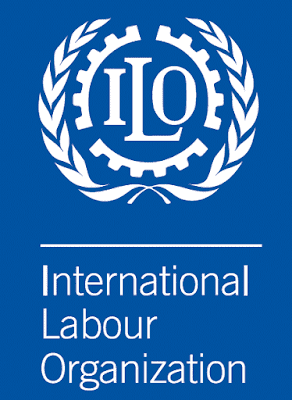mardankhan
Politcal Worker (100+ posts)
Most common definitions of Corporate Social Responsibility (CSR) for public knowledge.

Researchers and professionals from various organizations with different backgrounds have worked on the notion of CSR and its impacts on various organizational outcomes. Many of these authors have attempted to define this notion from different perspectives; however, due to its diverse nature, an agreement on a single definition of CSR is still at large. Among the various definitions, which are mostly reported in the extant literature and public policy manuals on CSR are being provided here for enhancing public knowledge and motivation about the notion. I hope that you will find it interesting and share it among your social networks.
Carroll(1979, p. 500) defines CSR as the social responsibility of business encompasses the economic, legal, ethical and discretionary expectations that society has of organizations at a given point of time.
Similarly Herman Aguinis (2011) says that CSR are context-specific organizational actions and policies that take into account stakeholders expectations and the triple bottom line of economic, social, and environmental performance (p. 855).
Another author refers CSR to a company linking itself with ethical values, transparency, employee relations, compliance with legal requirements and overall respect for communities in which they operate. It goes beyond the occasional community service action, as CSR is a corporate philosophy that drives strategic decision‐making, partner selection, hiring practices, and, ultimately, brand development (McComb, 2002, p. 5).

Likewise, the definition of CSR given by The World Bank Council for SustainableDevelopment (WBCSD) in 1999 is that "Corporate Social Responsibility is the continuing commitment by business to contribute to economic development while improving the quality of life of the workforce and their families as well as of the community and society at large."
- Corporate Social Responsibility: Meeting changing expectations, p. 3
Finally, International Labor Organization (ILO)defines CSR as "a way in which enterprises give consideration to the impact of their operations on society and affirm their principles and values both in their own internal methods and processes and in their interaction with other actors. CSR is a voluntary, enterprise-driven initiative and refers to activities that are considered to exceed compliance with the law."(ILO website).
From the above mentioned definitions, it is clear that CSR is now moving towards more conscientious competitiveness and that the notion has a role to influence and inspire the strategic direction of organizations.
Do share your opinion about how organizations are perceiving CSR in your countries of residence.

Researchers and professionals from various organizations with different backgrounds have worked on the notion of CSR and its impacts on various organizational outcomes. Many of these authors have attempted to define this notion from different perspectives; however, due to its diverse nature, an agreement on a single definition of CSR is still at large. Among the various definitions, which are mostly reported in the extant literature and public policy manuals on CSR are being provided here for enhancing public knowledge and motivation about the notion. I hope that you will find it interesting and share it among your social networks.
Carroll(1979, p. 500) defines CSR as the social responsibility of business encompasses the economic, legal, ethical and discretionary expectations that society has of organizations at a given point of time.
Similarly Herman Aguinis (2011) says that CSR are context-specific organizational actions and policies that take into account stakeholders expectations and the triple bottom line of economic, social, and environmental performance (p. 855).
Another author refers CSR to a company linking itself with ethical values, transparency, employee relations, compliance with legal requirements and overall respect for communities in which they operate. It goes beyond the occasional community service action, as CSR is a corporate philosophy that drives strategic decision‐making, partner selection, hiring practices, and, ultimately, brand development (McComb, 2002, p. 5).

Likewise, the definition of CSR given by The World Bank Council for SustainableDevelopment (WBCSD) in 1999 is that "Corporate Social Responsibility is the continuing commitment by business to contribute to economic development while improving the quality of life of the workforce and their families as well as of the community and society at large."
- Corporate Social Responsibility: Meeting changing expectations, p. 3
Finally, International Labor Organization (ILO)defines CSR as "a way in which enterprises give consideration to the impact of their operations on society and affirm their principles and values both in their own internal methods and processes and in their interaction with other actors. CSR is a voluntary, enterprise-driven initiative and refers to activities that are considered to exceed compliance with the law."(ILO website).
From the above mentioned definitions, it is clear that CSR is now moving towards more conscientious competitiveness and that the notion has a role to influence and inspire the strategic direction of organizations.
Do share your opinion about how organizations are perceiving CSR in your countries of residence.
- Featured Thumbs
- http://metafrique.net/wp-content/uploads/2013/07/132406802.jpg
Last edited by a moderator:
























